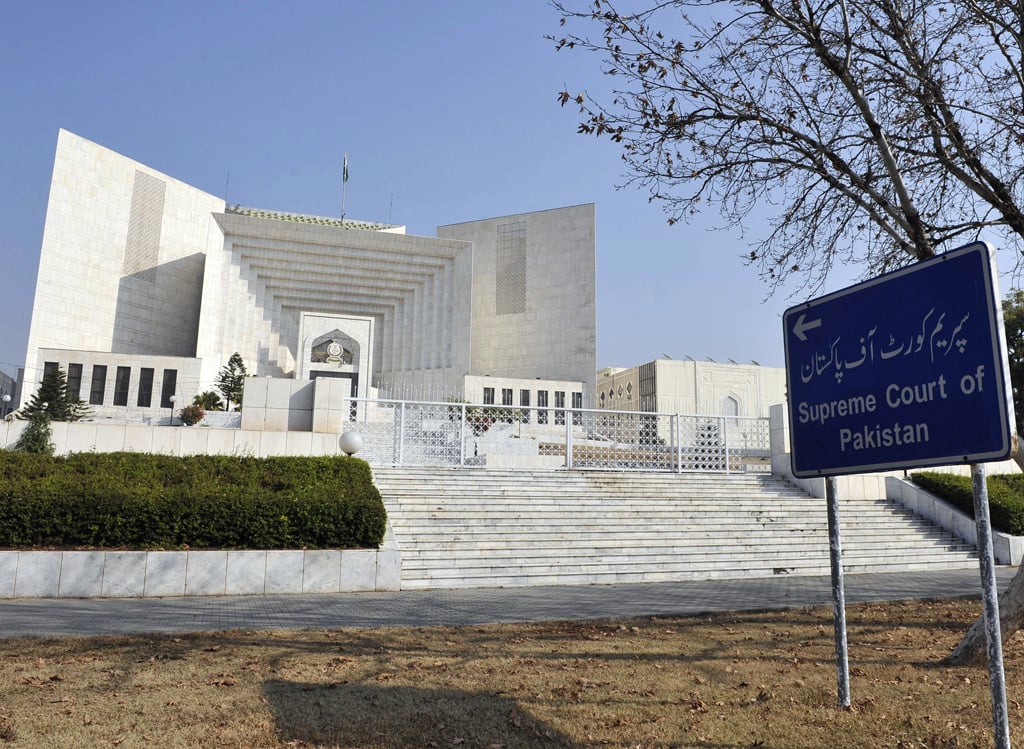
“In the changed scenario the legislature may consider amending the NAO appropriately so as to enable an accused person to apply for his bail before the relevant accountability court in the first instance.
“It is also recommended that the unrealistic timeframe for conclusion of a trial specified in section 16(a) of the NAO, 1999 may also be reconsidered and revisited by the legislature,” says a 22-page verdict authored by Justice Asif Saeed Khosa, who was part of a larger bench to decide bail appeal of Tallat Ishaq, an office superintendent at the Director Development, Quetta Division.
The judgement says the original intent behind introduction of section 9(b) of the NAO, 1999 ousting jurisdiction of the courts regarding grant of bail in a case under the said ordinance already stands neutralised by opening of the door for bail through a high court.
Govt, opposition mull NAB laws tweak
“Apart from that the high courts and this court have always felt difficulty in adjusting the requirements of “without lawful authority” and “of no legal effect” relevant to a writ of certiorari (Article 199(1)(a)(ii) of the Constitution) with the requirements of bail provided in section 497, CrPC.”
It says the petitioner mainly argued that he was arrested in connection with this case on 01.08.2017 but his trial has not so far been completed and the delay entitles the petitioner to be admitted to bail during the pendency of his trial. “In view of the provisions of section 16(a) of the NAO, 1999, the trial be concluded within 30 days,” it adds.
The judgment while comprehensively interpreting section 16(a) of NAO 1999 holds that it is not mandatory to conclude the trial of graft cases within 30 days as it has no penal consequences.
The court also holds that in an appropriate case through exercise of its jurisdiction under Article 199 of the Constitution, a high court may grant bail to an accused person arrested in connection with an offence under the NAO 1999 and section 9(b) of the said ordinance does not affect the jurisdiction of a high court conferred upon it by the Constitution.
Treat people with respect, CJP tells NAB Lahore chief
“The constitutional jurisdiction of a high court is, however, an extraordinary jurisdiction meant to be exercised in extraordinary circumstances and not in run of the mill cases or as a matter of course,”
The judgement says the section 16 (a) of NAO 1999 speaks of prosecution of an accused person in an accountability court and hearing of the case by such court on day to day basis so as to be disposed of within 30 days and it does not speak of the accused’s period of custody before or during the trial.
“Likewise, section 16(a) does not contemplate or provide for bail for an accused person if the timeframe for the trial mentioned therein is overstepped. In fact section 9(b) of the said ordinance expressly ousts jurisdiction of accountability court in the matter of grant of bail to an accused person on any ground.”
NAB officials barred from giving media interviews
The verdict says the word “shall” used in section 16(a) of the NAO 1999 has been used in the context of conclusion of a trial by an accountability court and it is directory in nature and not mandatory because it does not provide for a penalty or a consequence in case of its nonobservance or non-compliance.
“It does not provide that if the stipulated timeframe is not adhered to by an accountability court in the matter of conclusion of a trial then the prosecution of the accused person would stand terminated and he would be deemed to have been acquitted or that the accused person would be entitled to be admitted to bail on such ground.”
The court says there is hardly any precedent available where a high court or the SC admitted an accused person to bail exclusively on the ground that he had remained in custody for over 30 days or his trial had not concluded within 30 days, except a couple of cases.
“It goes without saying that a direction issued by a superior court to the trial court to conclude a trial within a specified period is an administrative direction and non-compliance of such a direction by the trial court for whatever reason may not entitle the accused person to claim bail as of right,” it says.

















COMMENTS
Comments are moderated and generally will be posted if they are on-topic and not abusive.
For more information, please see our Comments FAQ